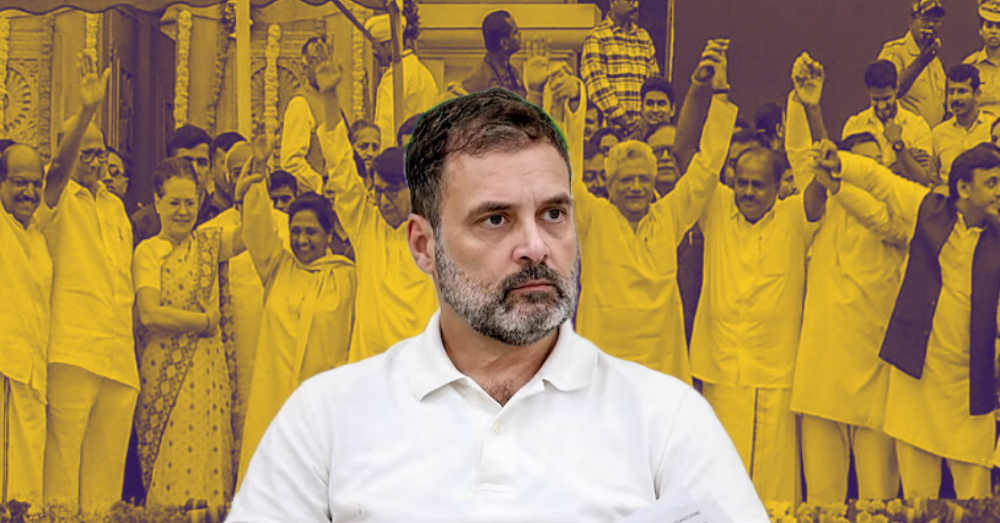Growing up, I saw my country show the rest of the world where we, as humans, had reached in the twentieth century. Even as a developing nation, I felt pride in the way we represented togetherness, warmth, and unity in a country that is so diverse in every aspect of life, be it language, culture, or religion.
Yes, religion, a facet of life I believe is always best to be kept away from the politics of our country, is now, sadly, the sharpest dagger of the ruling party of our country. The dagger that can shape a cloud so humongous that it overcasts violence, hatred, accountability, reliability and the silent but steady pace at which the pillars of democracy of this country are being bulldozed.
With the elections looming, one can’t help but think about how our country’s flagbearer of the opposition will deal with all of this. With a gold mine of issues to choose from – the Manipur riots, the Hindenburg report, the ill treatment of the country’s most popular athletes, the rising prices of necessities, unemployment, and so on and so forth – the Congress still fails to make a significant impact.
The inability to convey the gravity of concerns like these among the masses and put forward how they could effectively make a difference, is reflected in the losses suffered by the party in the heartland of the country recently. It is to be also noted that the two most popular protests against the government – the CAA protests and the farmer’s protests were spearheaded by student unions and farmers unions respectively.
As the government passes a bill that alters the body deciding the appointment of the Chief Election Commissioner (CEC) and Other Election Commissioners (OECs) in a parliamentary session with a record number of suspended MPs, the Congress flatlines to capitalise on this, into what should have been a broader, louder protest against the government, which aims to disrupt the autonomous functioning of the election commission.
This meddling in the independent functioning of the election commission poses a far more ominous threat than meets the eye, as it could possibly result in the forming of a totalitarian state. It is also disheartening to see that the majority of MPs suspended for raising the issue of the security breach in the parliament not emphasizing enough on the concerns the protesting youth had and why they had to protest in the way that they did.
It is disappointing to witness the apathy by which Congress deals with the majority of issues, which could be understood as a lack of concrete idealism and set of values that the party puts forward. This is echoed in the confusion they had regarding the stance to take during the Ayodhya temple’s inauguration. Perhaps the party needs to draw inspiration from its forefathers in uniting people against a regressive ideology, as it did before. However, for this, it has to trust the people of this country, and more importantly, trust the process within the party itself.
The ideology of oneness and cooperation should be put forward firmly by the party as the new narrative by which our country should move ahead with. The process needs to be strictly carried out within the party so that the people gain confidence in the strong liberal stance it stands for, instead of adopting soft right positions which are perceived as a lack of substance and insincerity, letting down masses who stand for the idea of an unbiased, united country and in turn making the party seem weak, brittle. With structural efficiency and hearty functioning the party can disseminate this down the grassroots, into the hearts of the people causing real, meaningful, impactful change for the better of our country.
With the country’s fourth pillar of democracy, the media, corrupted to a disturbing extent, the opposition will have to find alternate sources to scrutinise the poisonous functioning of the government in a way that the ordinary citizen can absorb. Today, social media can play a significant role in this by creating a direct passage of communication between the party and the common citizen, but again it is evident that sufficient efforts in this regard are lacking.
Utilising this passage and other means could also be used to effectively convey to the people the change, betterment, and vision for the future the party has when compared to the current ruling party. As the elections approach, one can only hope that the Congress buckles up and takes the wheel, as it is necessary to end a rule thriving on hate and intolerance. Because such a direction is not where my country should be heading in this day and age.
